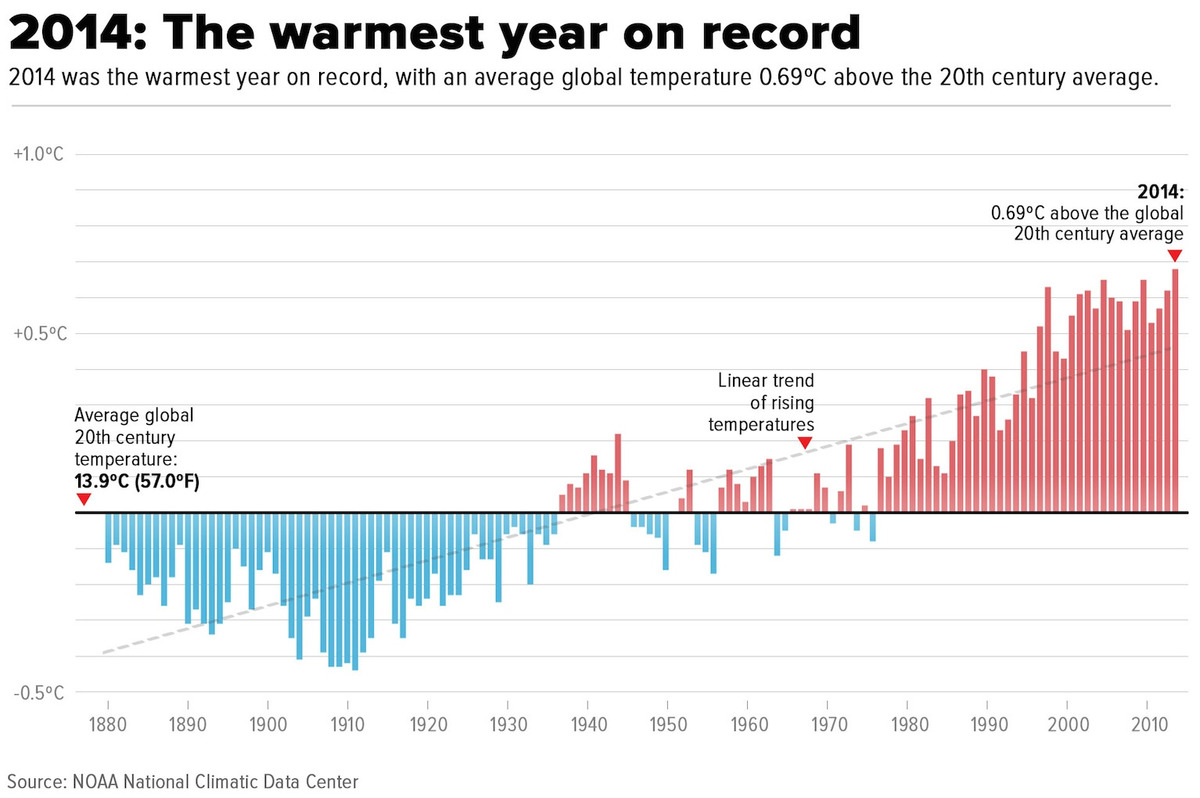I rappresentati di 195 paesi hanno raggiunto un accordo alla conferenza delle Nazioni Unite sul clima COP 21 che prevede nuovi limiti e meccanismi di controllo per le emissioni di gas serra.
I punti chiave dell'accordo:
• Raggiungere il picco di emissioni di gas serra nel più breve tempo possibile per poi proseguire con una rapida riduzioni e arrivare a un equilibrio tra le emissioni da attività umane e la rimozioniedi gas serra nella seconda metà di questo secolo.
• Limitare l'aumento della temperatura globale al di sotto dei 2 gradi e proseguire gli sforzi per limitarlo a 1,5 gradi.
• Verificare i progressi compiuti ogni cinque anni.
• L'impegno dei paesi sviluppati a destinare ogni anno 100 miliardi di dollari ai paesi in via di sviluppo per sostenere la conversione da economie basate su fonti energetiche non rinnovabili a economie verdi.
L'accordo di Parigi è un primo passo. Uno di quelli importanti, ma è ancora un salto nel buio. Kyoto ci ha insegnato a essere prudenti sui facili entusiasmi.
There are still plenty of hard questions about how effective these diplomatic tools will be. Will the transparency measures work? Will that climate aid actually materialize? The basic reality, though, is that the Paris agreement can only encourage countries to step up their efforts. It can't force them to do so. That's the hard part, the part that comes next. Further action will ultimately depend on policymakers and inventors and engineers and executives and activists across the globe, not the UN. In other words, the Paris deal is only a first step. Maybe the easiest step.
Siccità, inondazioni, aumento del livello del mare, migrazioni di massa, eventi climatici estremi e carestie dovute al global warming non sono ancora scongiurate. Restiamo sulla lama di un rasoio.
The new deal will not, on its own, solve global warming. At best, scientists who have analyzed it say, it will cut global greenhouse gas emissions by about half what is necessary to stave off an increase in atmospheric temperatures of 2 degrees Celsius, or 3.6 degrees Fahrenheit. That is the point at which scientific studies have concluded the world will be locked into a future of devastating consequences, including rising sea levels, severe droughts and flooding, widespread food and water shortages, and more destructive storms.
L'accordo della COP 21 resta tuttavia il più importante degli ultimi decenni.
The moment was the culmination of decades of work. The meeting — officialyl called "COP21" because it is the twenty-first annual gathering of its kind — followed notable but ultimate frustrated attempts to reach a similar agreement in Lima, Peru, last year and Copenhagen, in 2009.
Nonostante tutto James Hansen, il climatologo della NASA conosciuto per i suoi studi sul riscaldamento globale, lo ritiene del tutto insufficiente.
Mere mention of the Paris climate talks is enough to make James Hansen grumpy. The former Nasa scientist, considered the father of global awareness of climate change [says of the plan]... "It's a fraud really, a fake... It's just bullshit for them to say: 'We'll have a 2C warming target and then try to do a little better every five years.' It's just worthless words. There is no action, just promises. As long as fossil fuels appear to be the cheapest fuels out there, they will be continued to be burned."
Gli sforzi che dovranno compiere le nazioni in via di sviluppo saranno eccezionali.
Dr. Nur Masripatin, lead negotiator for Indonesia, said: "We are not happy with the finance. It's very weak. The deal is not fair... But we don't have more time, we have to agree on what we have now."
LEGGI ALTRO...

